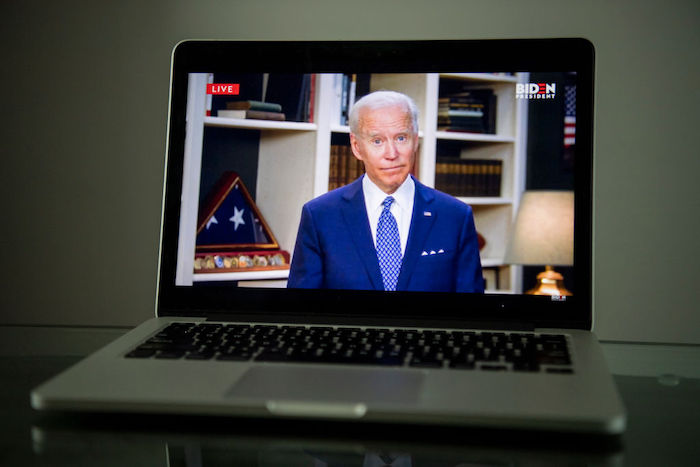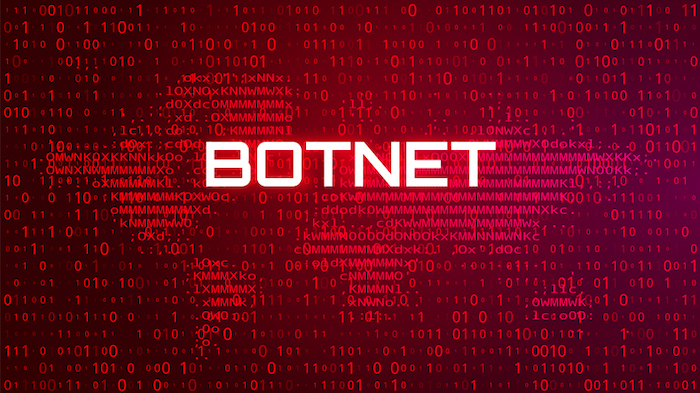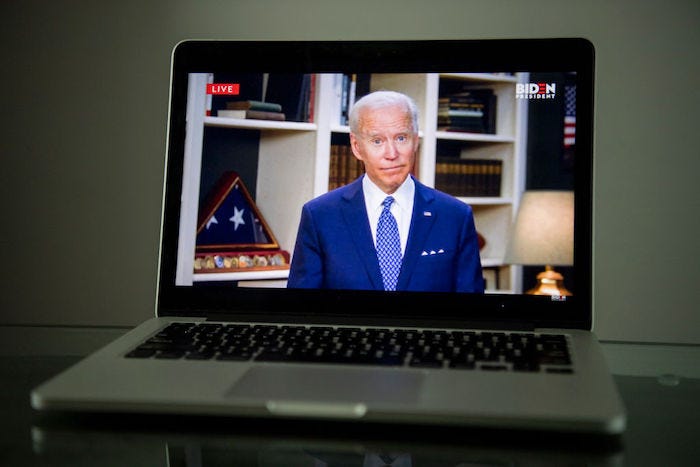Two Items of Note
First, this afternoon we’ll be hosting a discussion with Bonnie Glick, Deputy Administrator and COO of USAID, and Heritage’s Joshua Meservey on 5G: The Emerging Market’s Trojan Horse.
-
The question we’ll be discussing: China’s burgeoning fifth-generation (5G) wireless network offers developing countries faster access to the rest of the world and the ability to expand their industries with the use of digital technology. But, at what cost?
-
You can register to attend this virtual event here.
Second, Klon recently joined AEI’s Adam White on his Unprecedential podcast to discuss Klon’s new essay, The New Superpowers: How and Why the Tech Industry is Shaping the International System. Give it a listen!
Ok, on to the news!
About that New York Post Story

What’s new: The world exploded after Twitter and Facebook blocked the sharing of a New York Post article about Hunter Biden.
Why this matters: The platforms’ multiple justifications for their actions and the ham-handed way in which these actions occurred raise serious concerns about political bias and censorship.
What we’re thinking: Heritage President Kay Coles James sent letters to Twitter CEO Jack Dorsey and Facebook CEO Mark Zuckerberg. Here’s our bottom lines:
-
We don’t know the origins or the veracity of the materials underlying the New York Post’s reporting — we’re not commenting on that.
-
However, considering how Twitter and Facebook allow partisans to abuse their fact checking and content moderation processes, is it really any surprise that Americans don’t trust them in this moment?
-
We believe Americans don’t need arbiters of truth. Instead, we need social media platforms that apply their rules fairly and impartially.
-
In the end, the failure of social media companies to win and to keep the public trust is now, sadly, figuring heavily into electoral politics.
UN partnering with China on joint data hubs

What’s new: The United Nations is partnering with Beijing to set up “joint global data hubs” in China, according to the Wall Street Journal.
Why this matters: The UN is reportedly trying to improve its ability to collect, store, unify, and report on data from its 193 member states in support of its “sustainable development goals.” If this partnership goes forward, however, this effort will hand-deliver this data to the Chinese Communist Party who will then exploit it for their own ends.
Key points:
-
The reported plans envision a China-based research center and a geospatial center, with the latter focused on leveraging Beijing’s satellite surveillance capabilities.
-
This new joint complex is part of the UN’s master plan for global development, Agenda 2030, and focuses on 17 broad “sustainable development goals,” such as ending poverty and achieving “peace and justice.”
-
Records cited by the Wall Street Journal indicate locations have been chosen and memorandums of intent have been signed between the Chinese government and the UN’s Department of Economic and Social Affairs.
What we’re thinking: This is nuts! Any UN agency and any UN member state that allows their information to be stored in or managed by China is committing cybersecurity malpractice. We hope the United States raises these concerns in the UN and leads a full court press on rolling back this indefensible decision.
Beijing rolling out its official digital currency

What’s new: China is giving out nearly $1.5 million (~10 million Yuan) of its new, national digital currency.
Why this matters: This is one of the largest real-world trials of a digital currency and more than 50,000 people can now spend digital yuan at more than 3,000 merchants in the nation’s Shenzhen district.
Key points:
-
Shenzhen is home to many of China’s largest tech companies, including Huawei and Tencent.
-
Local supermarkets and pharmacies are among the participating merchants as well as Walmart, according to a post by the Shenzhen government messaging app WeChat.
-
The digital currency is not a cryptocurrency like bitcoin, and is, instead, issued and controlled by the People’s Bank of China.
What we’re thinking: As we have noted in our previously published analysis, this marks the first major central bank in the world to provide an electronic national currency. This plan also matters to the US because it’s part of a larger effort by Beijing to reassert government awareness of, and influence over, the nation’s massive digital financial markets. But this plan is about more than money—it is about power. While the US cannot assert significant influence over China’s digital currency plans, it can orient its own policies to create a prosperous environment for America’s financial innovations. Failing to do so, however, heightens the risk that the US will fall further behind international competitors in the evolving financial technology markets.
CYBERCOM takes Trickbot offline

What’s New: Over the past weeks, US Cyber Command (CYBERCOM) has disrupted the Trickbot botnet, a collection of more than one million computers world-wide that have been hijacked with malware and that are frequently used in ransomware attacks.
Why this matters: Trickbot is understood to be managed by Russian cyber criminals who may have ties to the Russian Government.
Key points:
-
American officials were reportedly concerned the botnet would be deployed to attack computer systems tied to US elections, according to reporting.
-
CYBERCOM doesn’t intend to permanently take the network down but does hope to sideline the botnet until after the election.
What we’re thinking: This operation reflects the Trump Administration’s generally more aggressive posture in cyberspace and is specifically representative of what CYBERCOM Commander Gen. Paul Nakasone calls “defending forward.” Some argue this aggressive posture provokes unnecessary risks; but, we’re inclined to believe actions like these — while risky — are also necessary in a world where defending nations means defending networks.
Space is getting crowded

What’s new: The CEO of Rocket Lab, a commercial space launch startup, says the company is running into growing congestion in outer space, according to CNN.
Why this matters: The growing number of government and commercial satellites in space is making it difficult to find a clear path for rockets to launch and to place new satellites.
Key points:
-
In 1978, NASA scientist Donald Kessler warned that a possible catastrophic chain reaction could be started in outer space if a single piece of “space junk” were to hit a satellite.
-
This “Kessler Syndrome” is the plot line from the 2013 movie, “Gravity.”
-
“This has a massive impact on the launch side,” said CEO Peter Beck, “[Rockets] have to try and weave their way up in between these [satellite] constellations.”
-
It is practically impossible to clean up this space junk on a large scale and it will take decades for it to naturally fall out of orbit.
What we’re thinking: This is why we can’t have nice things.









Please note that we at The Dispatch hold ourselves, our work, and our commenters to a higher standard than other places on the internet. We welcome comments that foster genuine debate or discussion—including comments critical of us or our work—but responses that include ad hominem attacks on fellow Dispatch members or are intended to stoke fear and anger may be moderated.